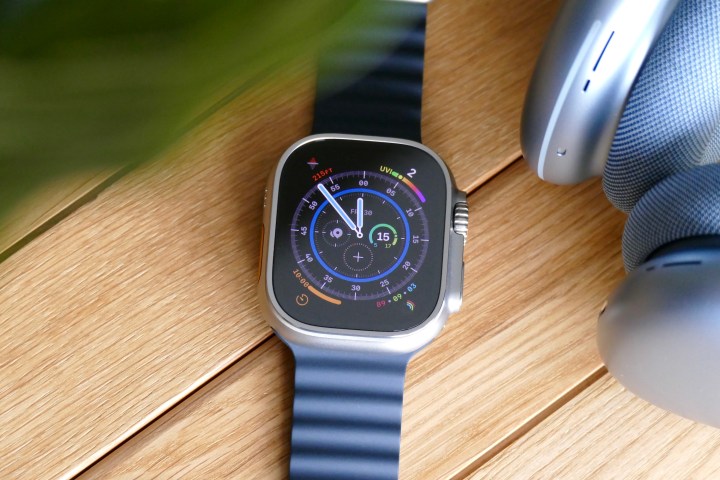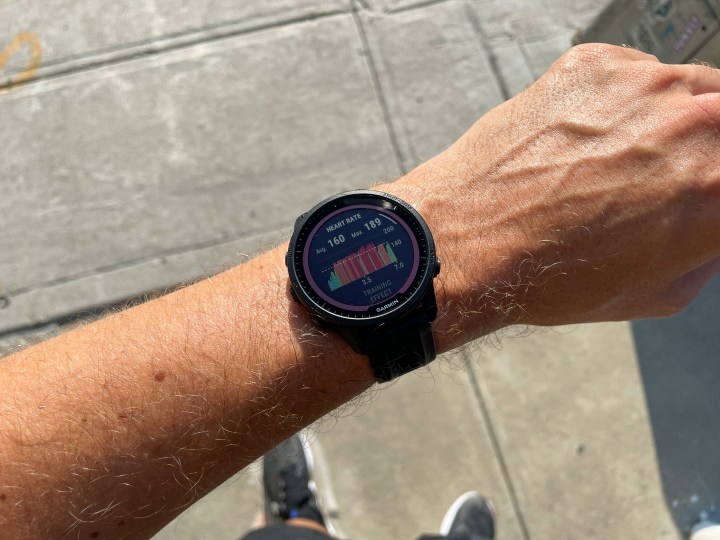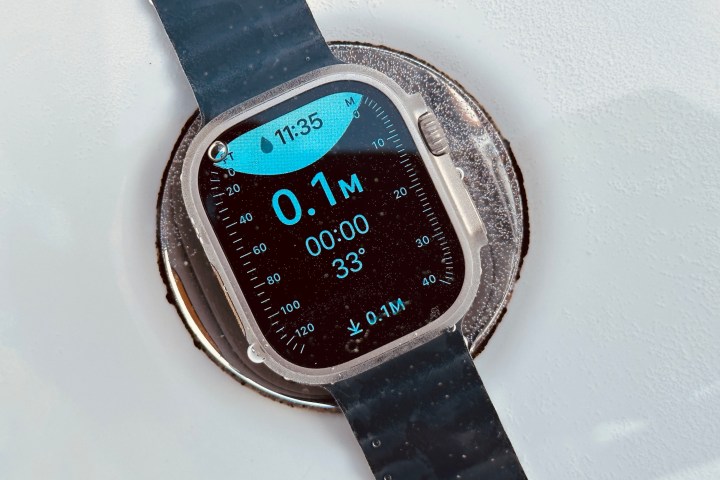Apple touts its new Apple Watch Ultra as the perfect wearable for athletes, but some outdoor professionals say it’s not the best choice as a timepiece for adventures.
The $799 Apple Watch Ultra is packed with features aimed at rugged sports, including a bigger screen and more durability than other Apple Watch models. It’s “a watch that pushes boundaries for athletes that do the same,” the company claims. Not so fast, Canadian duathlete Bradley Thompson told Digital Trends in an interview.

“If you are a serious athlete, you probably aren’t going to use an Apple watch,” he said. “There are way better watches on the market for athletes that don’t just cater to aesthetics or the Apple universe obsession people have.”
Ultra or not?
Apple says its Ultra model is “built for endurance, exploration, and adventure.” The new timepiece has a 49mm titanium case and the company’s brightest Apple Watch display. There’s also a new customizable Action button that offers quick access to a wide range of useful features, which could be useful for doing things like setting waypoints when you are on a hike.

“Inspired by explorers and athletes from around the world, we created an entirely new category of Apple Watch designed for new and extreme environments — it’s the most rugged and capable Apple Watch yet,” Jeff Williams, Apple’s chief operating officer, wrote in a news release. “Apple Watch Ultra is a versatile tool that empowers users to push their boundaries with adventure, endurance, and exploration.”
Thompson acknowledges that the Ultra offers simple user interfaces and better battery life than previous models. “It has a race route feature, and it has beneficial features such as heart rate zones,” he added. “These are some of the benefits for someone looking to utilize an Apple watch for hard workouts.”
But Thompson said if you’re a serious athlete, you might be better off looking at competitors to the Ultra, such as the Garmin lineup. “With a watch such as Garmin, you are buying a sports watch with better battery life, more accurate workout tracking, quality GPS, external tracking connections, safety tracking features, workout, route planning, and more,” he added.

Lukas Furtenbach, the owner of mountaineering company Furtenbach Adventures, said in an interview that the Garmin Fenix series is a better watch for expedition climbers. While the Ultra offers accurate blood oxygen readings and heart rate monitoring, Furtenbach said he prefers the Fenix because of its longer battery life. “On expeditions, where you don’t always have a possibility to charge, this is essential,” he added.
Kenneth Graham, formerly a scientist at Australia’s NSW Institute of Sport and now the principal scientist at the sports technology company eo, said in an interview that devices like the Ultra could help athletes understand the impact of different training strategies. “So you can take this information forward into competition and race day events to optimize performance and then [use] it on race day as a device to provide both feedforward and feedback information to further refine and optimize performance,” he added.
But, Graham cautioned, “these devices only provide part of the story” and that “you should also associate the information you have gleaned from the devices with your perception of how your body and the environment fine-tune what you are doing.”
Deep dive

The Apple Watch Ultra features a new depth gauge. Apple claims the Ultra also delivers the data and functionality required by scuba and free divers for descents down to 40 meters. The Depth app shows the current time, your current depth, the session’s maximum depth while you’ve been underwater, and the water temperature.
In an interview, ocean explorer Marc Bromhall said that the Ultra has poor battery life compared to other watches in its class. “If you want to use the dive computer, you have to take out a paid subscription,” he added.
The Ultra’s only advantage over similar Garmin devices is that it will immediately connect you to emergency services, he said. “Garmin merely sends a notification to your contacts with your location,” he added. “As a result, your friends must be on their phones at all times.”

But Bromhall said his watch of choice is Garmin’s fēnix 7X Solar. “This, for me, is the best watch in its class,” he added.
The Fenix 7 series offers features intended to appeal to serious athletes, including a multi-LED flashlight. The company claims the 7X models have a battery life of up to five weeks in smartwatch mode and up to five days in GPS mode.
“The fēnix 7 Series brings cutting-edge training and multisport features to the wrist,” Dan Bartel, Garmin vice president of global consumer sales, said in a news release. “With a design upgrade, Garmin’s best-in-class performance metrics, and health/wellness tracking, [the] fēnix 7 provides serious athletes everything they need for peak performance.”
A new type of smartwatch
Perhaps that’s the best way to look at the Apple Watch Ultra. Not necessarily as a one-to-one replacement for a Garmin or other sports-focused watch but as a new category in itself.
There are other smartwatches out there better equipped for people who are serious about hiking, diving, etc. But if you want a watch that can assist with those things while also doubling as a fully-fledged smartwatch, that’s where the Apple Watch Ultra shines. It may not be the Garmin killer some had hoped, but rather something else entirely. And, depending on who you are, that may not be such a bad thing after all.



